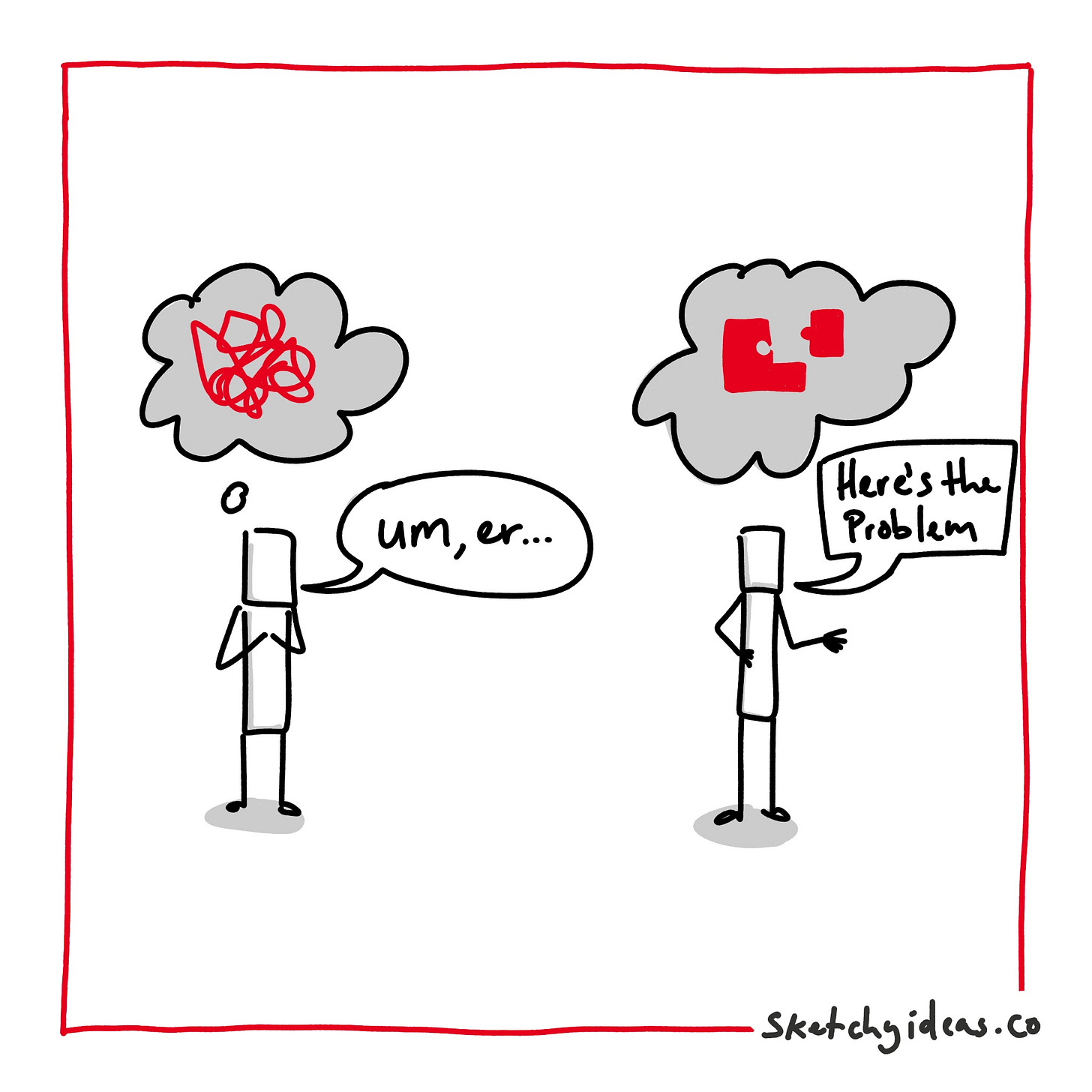Pre-script: I finally managed to transfer every subscriber over to substack. If you no longer want to receive these emails (the format is changing a bit) you can unsubscribe below. Have a great week!
Welcome back to sketchy ideas.
This week we’ve got a new format, great links, and a quick visual lesson.
Let me know what you think of this new, super short format.
The best of the web this week:
Building trust & connection for radical community change by Darren Powers on Instagram
How to draw two people spinning by Eva-Lotta Lamm
Stefan Kunz shares a quick tutorial on how to use Procreate Dreams (Have you already bought it?)
Whoever describes the problem best…
"Whoever best describes the problem is the one most likely to solve it." — Dan Roam
Have you noticed this too?
It makes sense when you think about it. Describing the problem well shows you understand it. And if you understand the problem, you're well on your way to solving it.
There are times when you know a solution but are unable to implement it due to a lack of resources or skills, but even then you still know a solution. And now you need to find a solution to your new problem.
But clarity over the problem can help in other ways too.
Todd Henry of The Accidental Creative says that when we are procrastinating or unsure what to do, it probably means we need to clarify the problem more. We don’t want to take on the project because we are unclear about what we need to do. Once we have the problem clearly defined, the rest is often easy.
There are, of course, exceptions, but here's what I'd takeaway: when you are solving a problem, test your understanding by describing it to someone else. If you can explain it clearly, you're on the right track. If not, you need to understand it better.
What do you think about Dan's quote? I’d love to read your thoughts in the comments.
Thanks for dropping by.
Don’t forget to check out my free email courses on sketchnoting skills. Each is under 5 days and tackles one of the top challenges people have with sketchnoting.
See you next time.



There’s tons of sentences that also illustrate what you mean :)
For instance saying that: if I had an hour to solve a problem, I’d focus 55 minutes in understanding the problem and 5 thinking about solutions. - Einstein
The truth is, people think they know the problem and go straight into solutions and technology to reach those, but the majority of times this is why they fail.
When I run full day workshops for ideation (they are thinkatons) we focus on 2-3 hours just on understanding the problem. 2 hours for ideas and wild ideas, small, big, stupid, ridiculous, futuristic, real, actionable ideas. Everything really.
And then we try to frame it into something: what is the scope really, and what are we missing here?
So I totally agree with you! If you don’t know the problem, no wonder you don’t know what to do :)